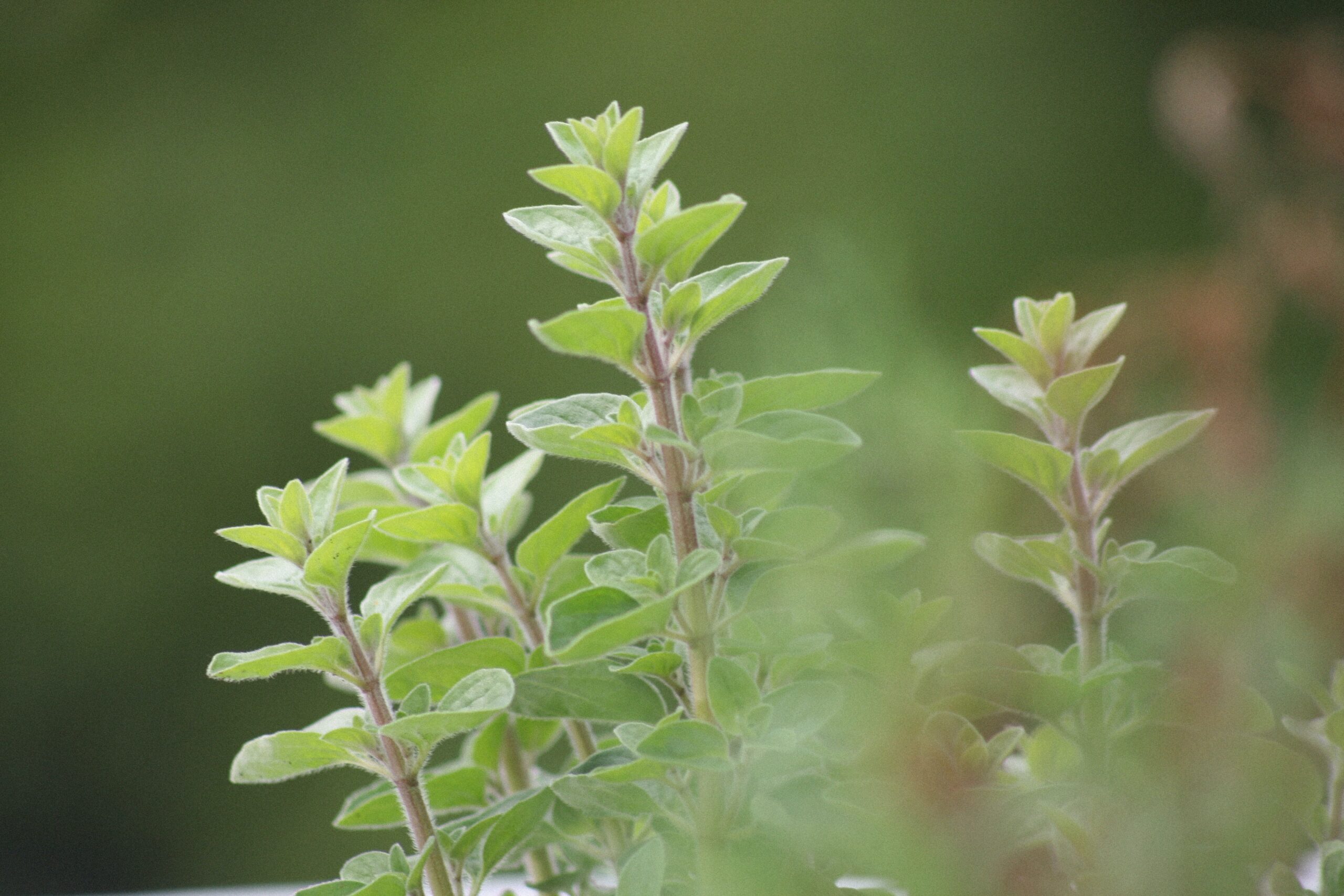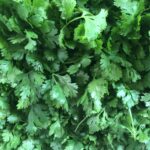
Oregano
By Narda McCarthy
June 20, 2022
With small deep-green leaves and small purple or white flowers, oregano is an aromatic herb from the mint (Lamiaceae) family, whose aroma and flavor honor its name, which literally means Joy of The Mountain, from the Greek “oros” (mountain) and “ganos” (joy). These two attributes have made of oregano a favorite in the kitchen for thousands of years.
Although its medicinal attributes have been known in family circles, they are less known to the public. Fortunately, in the last several years, medical and laboratory studies have been conducted to establish its effectiveness and word of mouth have extended its popularity to the family apothecary.
There are different types of oregano. The most common type is Oregano vulgare, which is known as Spanish thyme, wild marjoram, German oregano among other names.
Its antioxidants thymol, carvacrol, limonene, terpinene, ocimene, and caryophyllene are responsible for its many health benefits and for its distinctive flavor and scent.
Although more scientific studies are needed, Oregano, whether as an infusion, oil, or added to the food, is known to fight bacteria, relieve inflammation, fight cancer, and regulate blood sugar. People use it to relieve cramping, stop diarrhea, as an indigestion aid, an immune system booster and even to fight depression.
Oregano is also effective treating urinary tract infections and disorders; it used to treat headaches, heart conditions, lower high cholesterol, and it is said to help stop bleeding after a tooth extraction and alleviate tooth ache; rinsing your mouth with oregano infusion might prevent and treat gum disease because of its ability to fight bacteria. It is also known as a potent viral fighter.
Its oil applied to the skin could fight acne, dandruff, athlete’s foot, warts, ringworm, rosacea, muscle and joint pain, psoriasis, treat insect bites and even act as an insect repellant. It is not recommended to apply pure oregano oil to the skin as it is an irritant, always dilute with other oils, such as olive or almond oil in a ration of one to three (one measure of oregano oil, three of the other oil).
Regulating fat and carbohydrate metabolism and restoring damaged liver and kidney tissues, oregano improves our body’s ability to fight insulin resistance, providing dietary antioxidants that help our body eliminate the toxic substances that trigger oxidative stress, leading to cell damage causing, among others, cancer, and diabetes. Researchers have also found evidence that carvacrol and thymol may prevent melanoma cells from growing and spreading.
Due to its anti-inflammatory properties, oregano could be effective fighting rheumatoid arthritis, allergic asthma, other autoimmune diseases, and has proven to be a very effective chest and bronchial decongestant.
Although more studies are required, laboratory findings have shown that oregano’s antibacterial properties can prevent Staphylococcus aureus from growing in dairy and meat products. These studies also have revealed that oregano oil fights some microbes that do not respond to antibiotics, which opens a great window of hope in the fight for our health.
There are indications that oregano oil could be beneficial to treat candida infections in lactating mothers, although nothing conclusive yet.
And if all the above were not enough, reportedly, it can make small wrinkles go away!!
HOW TO USE:
As an infusion, essential oil, fresh or dry, oil capsules.
As a diet enhancer, you may add it to your stews, soups, baked and vegetable dishes. It enhances the flavor of beans, lentils, and chickpeas.
It is delicious in or over rice, pasta, and potatoes. Great on fish, chicken, beef and added to a marinade.
Added to olive oil and parmesan cheese makes a delicious spread over bread or pizza dough.
Add instead of basil or tarragon to your mozzarella and tomato dish.
Chop sweet onions and sauté them in butter, add sliced zucchini and allow it to cook lightly. Sprinkle with fresh oregano before serving… delis!
Mince garlic, fry it in butter, add chopped roasted peanuts to make a sauce for your pasta, garnish with finely chopped fresh oregano. You will love it, if you are no allergic to peanuts.
Add it to a recipient with water when taking a steam bath and let its aroma and goodness do their work.
Add a few drops of oregano essential oil or add fresh oregano to the fresh-ingredient infusion you use to make your home-made moisturizer.
QUICK TIPS:
One teaspoon of dried oregano is equivalent to one tablespoon of the fresh herb.
When cooking, use it dry or fresh; whole, chopped, crushed, or ground. Just be mindful of the amounts as too much could make your dishes a tad bitter.
When adding to hot dishes, add toward the end of cooking for full flavor.
If taking the oil capsules orally, follow the instructions on the bottle and always take it after meals.
Dry your fresh oregano by laying it flat on paper towels placed on a flat surface and away from the sun.
Or, put together several sprigs, tie the ends together and hang them on nails or on a string using wooden clothes pins, or on an herb-drying rack, always away from the sun.
Once dry, crush the sprigs and remove the stems. Store in small glass bottles. Dry oregano makes a great gift.
HOW TO GROW:
Oregano grows well in pots and in the ground. It is a perennial, so you can enjoy its flavor and benefits all year. Make sure that it is planted in well-drained soils and partial sunny areas. It grows well indoors.
When it gets too big, you might want to divide the plant by digging around the root ball and gently separating portions from the main plant. Add fresh soil to all plants and plenty of water to minimize the shock.
If you want a bushy effect, cut the long stems.
WARNING, SPECIAL CARE NOTE: Oregano can increase the risk of bleeding; therefore, it is recommended to avoid consuming or using any oregano product at least two weeks before surgery. Consult with your doctor if you are taking blood thinners
PLEASE KEEP IN MIND that all studies have used oregano’s concentrated extracts, therefore keeping oregano as part of your diet, does not necessarily mean that it will prevent or treat infections or other diseases. However, a sensible diet that includes vegetables, fruits, greens, and herbs, rich in antioxidants that includes oregano may help prevent the diseases mentioned above and many others.
Always consult with your physician if you are planning to use oregano for medicinal purposes as there could be interactions between the herb and other medicaments or, if you have a medical condition that could be affected by oregano.
Never swallow oregano oil nor any other essential oil.
Oregano may affect the body’s ability to absorb copper, iron, and zinc.
Avoid oregano if you have allergy to plants of the mint family, such as basil lavender, mint, sage, rosemary, etc.






Recent Comments